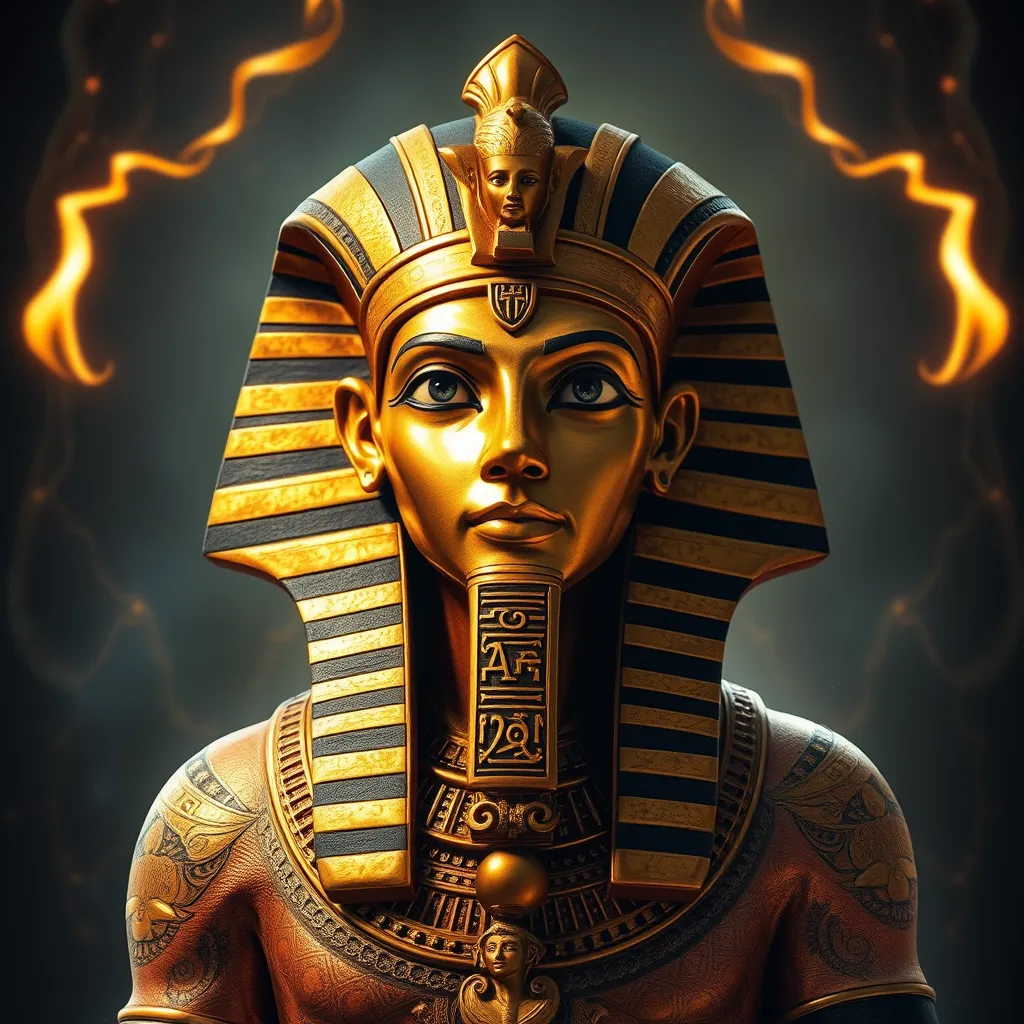The God of Wisdom: The Myth of Thoth and His Role in the Underworld
I. Introduction to Thoth
In ancient Egyptian mythology, Thoth is revered as the god of wisdom, writing, and magic. Often depicted with the head of an ibis or a baboon, Thoth embodies the principles of knowledge and intellect that were highly valued in Egyptian society. His significance extends beyond mere knowledge; he represents the very foundation of order and justice in a world often fraught with chaos.
The ancient Egyptians placed immense importance on wisdom and knowledge, viewing them as essential tools for navigating both the earthly realm and the afterlife. This article explores the myth of Thoth, his origins, attributes, and his pivotal role in the underworld.
II. Thoth’s Origins and Attributes
Thoth’s origins are deeply embedded in the rich tapestry of Egyptian creation myths. According to some legends, he is self-created, emerging from the primordial waters of chaos known as Nun. Other accounts suggest that he was born from the lips of Ra, the sun god, further emphasizing his connection to divine knowledge.
Thoth’s iconography is rich and varied, but he is most commonly depicted as:
- A man with the head of an ibis, symbolizing wisdom and knowledge.
- A baboon, often associated with the moon and its cycles.
- Holding a scribe’s palette and reed pen, representing his role as the god of writing.
As the god of wisdom, writing, and magic, Thoth presides over various domains, including:
- Writing and scribes
- Knowledge and science
- Time and the lunar calendar
- Magic and healing
III. Thoth as the God of Wisdom
Within the pantheon of Egyptian deities, Thoth occupies a crucial position as the god of wisdom. He is often depicted as a counselor to the gods and humanity alike. His contributions to knowledge and writing cannot be overstated; he is credited with the invention of hieroglyphics, the written language of ancient Egypt, and is the patron of scribes.
Myths highlight Thoth’s wisdom and intellect, such as the tale of how he mediated disputes among the gods and resolved conflicts with his profound understanding of the laws of the universe. His role in preserving knowledge is evident in stories where he records the deeds of the gods and the fates of mortals.
IV. The Underworld: Duat and Thoth’s Role
The Egyptian underworld, known as Duat, is a complex realm where the souls of the dead journey after death. Thoth plays a vital role in this journey, acting as a guide and protector for the souls navigating the afterlife. He is often depicted in the “Weighing of the Heart” ceremony, a critical ritual in determining the fate of the deceased.
During this ceremony, the heart of the deceased is weighed against the feather of Ma’at, the goddess of truth and order. Thoth is present to record the outcome, ensuring that justice is served. If the heart is found to be lighter than the feather, the soul is granted access to the afterlife; if heavier, it faces annihilation. This illustrates Thoth’s integral role in maintaining cosmic balance and justice.
V. Thoth’s Relationship with Other Deities
Thoth’s relationships with other deities are essential to understanding his role in the Egyptian mythos. One of his closest associations is with Ma’at, the goddess of truth and order. Together, they represent the harmony that must be maintained in the universe.
Additionally, Thoth collaborates with Osiris, the god of the afterlife, and other deities in the judgment of souls. His role as a mediator is crucial, as he facilitates communication between gods and humans, ensuring that the knowledge and wisdom he embodies are accessible to all.
VI. Thoth in Ancient Texts and Inscriptions
Thoth appears in numerous ancient texts, the most notable being the “Book of the Dead.” This text serves as a guide for the deceased, providing spells and instructions for navigating the afterlife. Thoth’s wisdom is evident in the teachings within these texts, emphasizing the importance of knowledge, morality, and justice.
Interpretations of Thoth’s wisdom in these ancient writings reflect a deep understanding of human nature and the universe. His teachings often stressed the significance of living a life in accordance with Ma’at, ensuring that one’s actions were just and righteous.
The historical significance of Thoth’s teachings continues to resonate, as they laid the groundwork for various philosophical and ethical systems throughout history.
VII. Thoth’s Legacy in Modern Culture
Thoth’s influence extends beyond ancient history into modern culture. He has inspired countless works of literature, art, and philosophy. Contemporary authors often draw upon the themes of wisdom and knowledge associated with Thoth, incorporating them into narratives that explore the human experience.
In modern spirituality and esoteric practices, Thoth symbolizes the quest for knowledge and enlightenment. His image is often used in various spiritual contexts, representing the importance of wisdom in self-discovery and personal growth.
The revival of interest in Thoth and ancient wisdom teachings reflects a broader longing for understanding and clarity in today’s complex world. As people seek to reconnect with the wisdom of the past, Thoth stands as a timeless figure representing the pursuit of knowledge and truth.
VIII. Conclusion
Thoth’s contributions to wisdom and the underworld are profound and enduring. As the god of wisdom, he embodies the principles of knowledge, justice, and the importance of living in harmony with the universe. His role in the judgment of the dead highlights the significance of moral integrity and the pursuit of truth.
Reflecting on Thoth’s myth reveals the enduring relevance of wisdom in modern society. In an era where knowledge is more accessible than ever, the lessons from Thoth’s teachings remind us of the importance of using wisdom responsibly and ethically.
In conclusion, Thoth’s legacy continues to inspire individuals and cultures, emphasizing that the pursuit of wisdom remains a fundamental aspect of the human experience.




